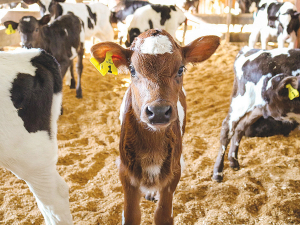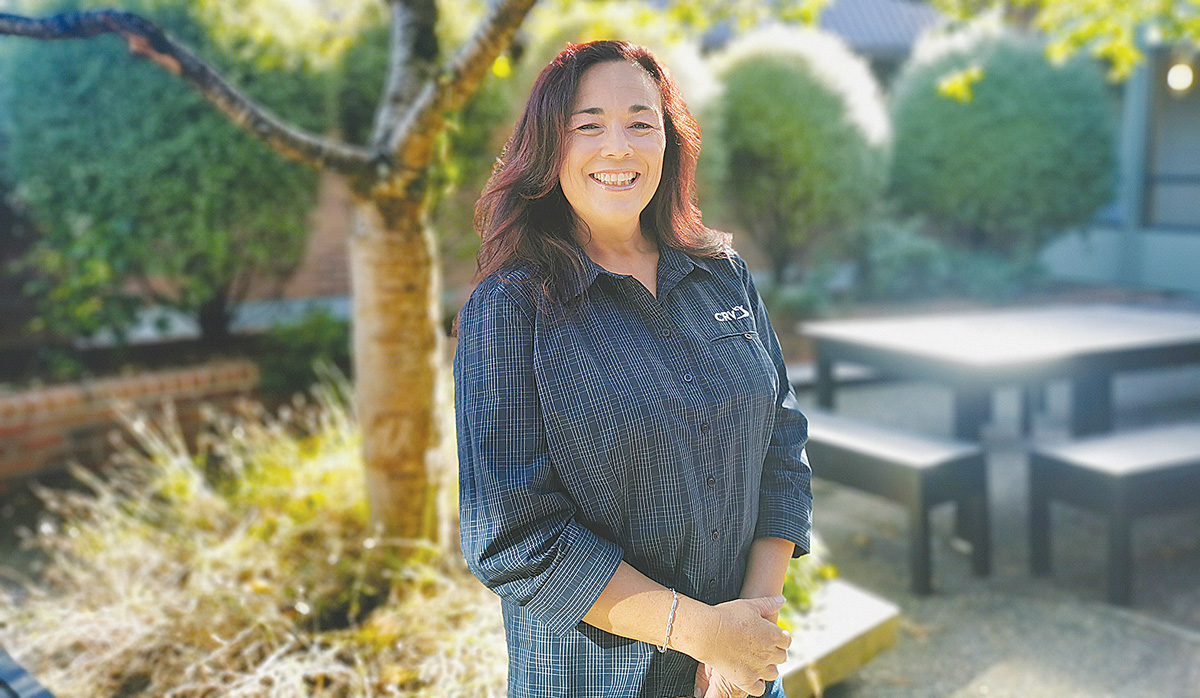Helping heifers grow
Dairy farmers can easily track the performance of their replacement heifers and ensure they reach their genetic potential.
 With DNA testing, farmers can confidently select the best replacement animals, allocate sexed semen to genetically superior cows, and increase the rate of genetic gain in their herd.
With DNA testing, farmers can confidently select the best replacement animals, allocate sexed semen to genetically superior cows, and increase the rate of genetic gain in their herd.
An increasing number of Otago and Canterbury dairy farmers are realising the value of DNA testing their calves to help them make better breeding decisions, according to local CRV sales consultant Deborah Adair-Dagg.
Originally from Scotland, Adair-Dagg started with CRV in August last year but has been living in South Canterbury/ Otago since 2018. Before arriving in New Zealand in 2004, Adair-Dagg earned her rural stripes on the family farm in Scotland. Farming both pigs and beef, she developed a skill for herd improvement and became passionate about using genetics to boost production and profitability.
“I was always drawn to the animal improvement side of farming,” she says.
“There will always be an intuitive side to herd improvement, but the science of genetics puts a level of objectivity into it. That’s why I joined CRV in New Zealand.
“It’s evident that farmers in my region are starting to take a different approach to fast tracking the genetic gain of their herds by DNA testing their calves.
“With DNA testing, farmers can confidently select the best replacement animals, allocate sexed semen to genetically superior cows, and increase the rate of genetic gain in their herd. DNA also makes calving much easier by matching calves back to dams. There is no need to mother calves in the paddocks, which saves time and money.”
The same ear tissue from a calf’s DNA test can be used for genomic testing, which is a more accurate method of predicting the performance of an animal and provides clearer insights.
“A genomic test is a deeper dive into the DNA,” explains Adair- Dagg. “With this test we can see the genetic markers that are responsible for specific traits within an animal. It adds an extra layer of accuracy to predicting the performance of an animal.”
By determining which calves are likely to be better producers, farmers can focus time, money, and staffing resource on growing those animals that will boost production numbers and increase the value of their herd. Deborah says farmers are often surprised that this type of forecasting is available.
“The most common phrase I hear is, ‘Wow! Can you really do that?’ As a breeding strategy, it makes complete sense. A farmer can quickly decide which animals to sell, and which ones to invest time and energy into, knowing these genetically superior calves will repay the investment with good production.”
As dairy farmers grapple with rising costs of production, many might see DNA and genomic testing as luxuries they can’t afford. However, Deborah believes testing is a wise business investment that pays for itself in the short term and can significantly boost profits over time.
 |
|---|
|
CRV sales consultant Deborah Adair-Dagg wants farmers to DNA test their calves as a first step. |
“It costs about $1,800 to raise a heifer into the herd, so you only want to spend that money on animals that have the traits your business needs. How do you know which ones to keep and which ones to sell? Genomic testing can give you the answers you need to make the best decisions.”
When it comes to assessing the performance merits of calves and heifers, Adair-Dagg knows that farmers often have a foot in two camps: what they can see with their eyes, and what the genetic data predicts. She understands.
“Farmers like to have good looking animals. For some, ugly animals are seen as potentially poor performers. I know where they’re coming from. I used to be a qualified sports therapist, so I know that a lot of good information can be gleaned from assessing the anatomical structure of a living thing.
“But often the visuals don’t tell the full story. That’s where genetic data and production figures come in. Hard data cuts through the subjective stuff and tells you how individual animals are likely to perform in the future or are performing now.”
Coming from Scotland, Deborah knows that genomic testing is a more common practice among European farmers. New Zealand is catching on, and DNA testing calves is an excellent way to get started.
“In Europe, farmers will often test the entire herd. They know there are big pays-off down the track. Some New Zealand farmers are fully on board, but most are a little hesitant.
“As calving nears, I am encouraging my farmers to DNA test their calves as a first step. The bottom line is you could be breeding in the dark without this kind of data.”
The country’s 4200 commercial fruit and vegetable growers will vote from May 14 on a new HortNZ levy.
Meat processor Alliance Group is asking farmer shareholders to inject more capital in order to remain a 100% co-operative.
A vet is calling for all animals to be vaccinated against a new strain of leptospirosis (lepto) discovered on New Zealand dairy farms in recent years.
Dairy
Rural banker Rabobank is partnering with Food Rescue Kitchen on a new TV series which airs this weekend that aims to shine a light on the real and growing issues of food waste, food poverty and social isolation in New Zealand.
Telco infrastructure provider Chorus says that it believes all Kiwis – particularly those in the rural areas – need access to high-speed, reliable broadband.
OPINION: Talking about plant-based food: “Chicken-free chicken” start-up Sunfed has had its valuation slashed to zero by major investor Blackbird…
OPINION: Synlait's financial woes won’t be going away anytime soon.